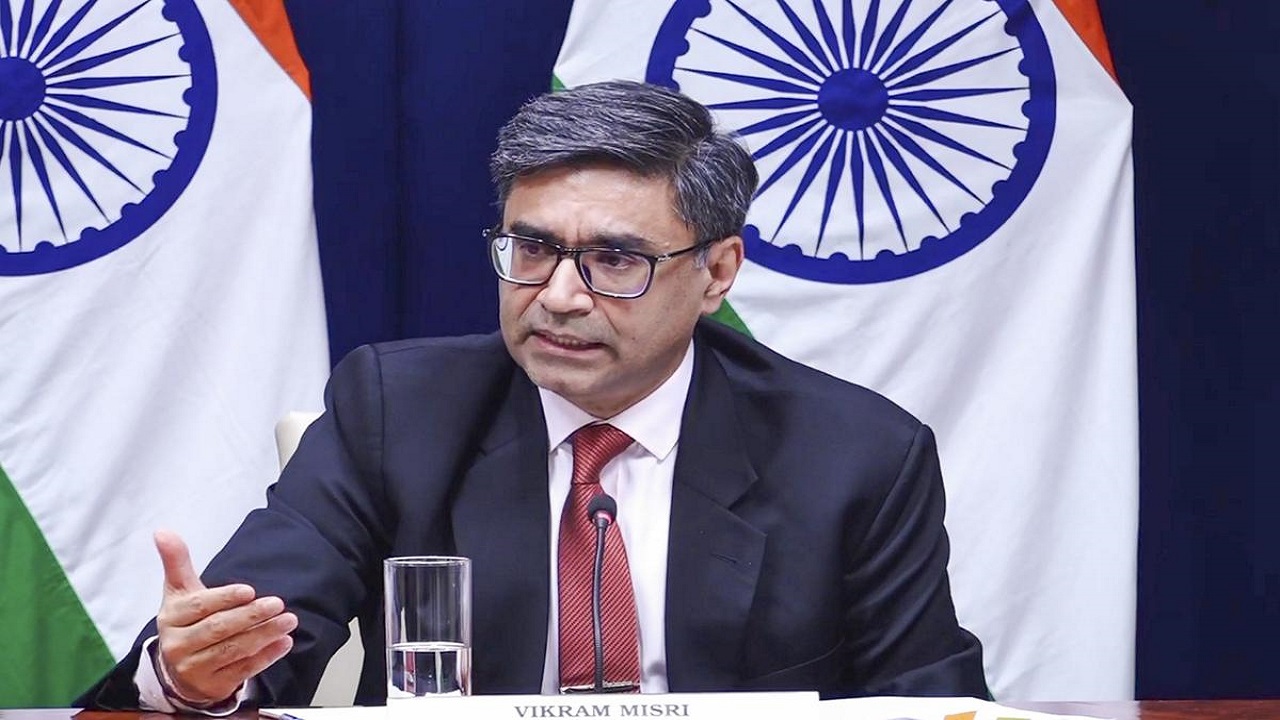Security, Strategy, and Soft Power: India’s Evolving Global Engagement
Context
Following Operation Sindoor (May 7–10, 2025) — a four-day military engagement — India has faced sharp criticism not for its actions alone but for the diplomatic messaging that followed. Unlike previous instances of cross-border terror where global support was widespread, the international response this time was muted and fragmented. This has raised important questions about the effectiveness of Indian diplomacy, especially in light of geopolitical shifts and perception challenges.
Eroding International Support
-
In contrast to events like the 2008 Mumbai attacks, 2016 Uri, and 2019 Pulwama, global support for India post-Operation Sindoor has been relatively lukewarm.
-
Despite strong condemnations of the Pahalgam attack, India did not receive unequivocal backing, especially from South Asian neighbours.
-
Pakistan, however, secured explicit support from nations such as China, Türkiye, and Malaysia, and organisations like the OIC.
-
This asymmetry in responses is seen as a failure in India's diplomatic outreach, especially when compared to past successes.
Diplomatic Wins for Pakistan
-
Islamabad influenced multilateral forums, such as the UNSC, to its advantage.
-
In April 2025, Pakistan succeeded in removing references to The Resistance Front (TRF) from a UNSC resolution on the Pahalgam attack.
-
Symbolic and strategic gains included:
-
Leadership roles in UNSC counter-terrorism bodies
-
Access to international loans despite India’s objections
-
Continued engagement with the United States, with General Asim Munir hosted at the White House
-
-
These developments raise concerns about India’s declining narrative traction in international diplomacy.
Hyphenation by the United States
-
A major setback was the U.S. President’s repeated statements equating India and Pakistan, suggesting moral parity between the two.
-
Offers of mediation on Kashmir and weak condemnations of terrorism indicate a shift in strategic alignment.
-
Such comparisons undermine India’s global position and highlight gaps in bilateral understanding.
Message vs. Messenger
-
As the famous line from Antony and Cleopatra states: "I that do bring the news made not the match", diplomats can only deliver what they are instructed to.
-
The real issue lies in the content, clarity, and tone of India’s post-Sindoor diplomatic communication.
-
Blame directed at diplomats is therefore misplaced, and should instead focus on the messaging strategy.
Modi’s “New Normal” Doctrine and Global Perceptions
India’s military doctrine has undergone a shift, raising concerns internationally. Key aspects include:
-
Terror = War: Positions terrorism on par with war, lowering the threshold for retaliation.
-
Rejection of Nuclear Blackmail: Promotes strategic autonomy, but introduces nuclear brinkmanship into regional discourse.
-
No distinction between State and Non-State Actors: Implies that attacks by non-state actors can invite full-scale retaliation, destabilising regional norms.
-
These positions may project domestic strength, but globally appear aggressive, especially in a time of heightened sensitivity to territorial aggression.
Changing Global Attitudes Post-2020
-
The global discourse on military action has changed since Russia’s invasion of Ukraine and Israel’s actions in Gaza.
-
India’s positions, such as:
-
Non-condemnation of Russia
-
Increased oil imports from Moscow
-
Silence on Gaza
-
Have eroded moral credibility, especially in Europe and the Global South.
-
-
This perceived selective consistency undermines India's diplomatic legitimacy when calling out terrorism or seeking support.
Democracy, Image and Credibility
-
India’s traditional strength in diplomacy has been its image as the world’s largest democracy.
-
However, rising concerns over democratic backsliding have challenged this perception.
-
Key issues include:
-
Citizenship (Amendment) Act (CAA)
-
Abrogation of Article 370
-
Internet shutdowns, arrests of dissenters, and allegations of extraterritorial killings
-
-
During Operation Sindoor, Indian diplomats had to defend not just India’s security stance, but also its human rights record.
-
This blurring of India’s democratic distinction from Pakistan weakens its diplomatic leverage.
The Way Forward: Rethinking India's Diplomacy
To address current challenges and regain diplomatic momentum, India must:
-
Reframe its messaging to project itself as a democratic, responsible, and stabilising power.
-
Ensure that its strategic autonomy does not translate into moral inconsistency.
-
Recognise that perception management is as critical as military or economic strength in international relations.
-
Reinforce credibility through coherent foreign policy, clear narrative, and value-based engagement.
Conclusion
India’s right to defend against cross-border terrorism is unquestionable, and global indifference is understandably frustrating.
However, effective diplomacy requires more than military strength—it demands moral consistency, strategic clarity, and alignment with global expectations.
The current criticisms reflect not a failure of diplomats, but a broader disconnect between India’s actions, narrative, and international perception.




Comments (0)